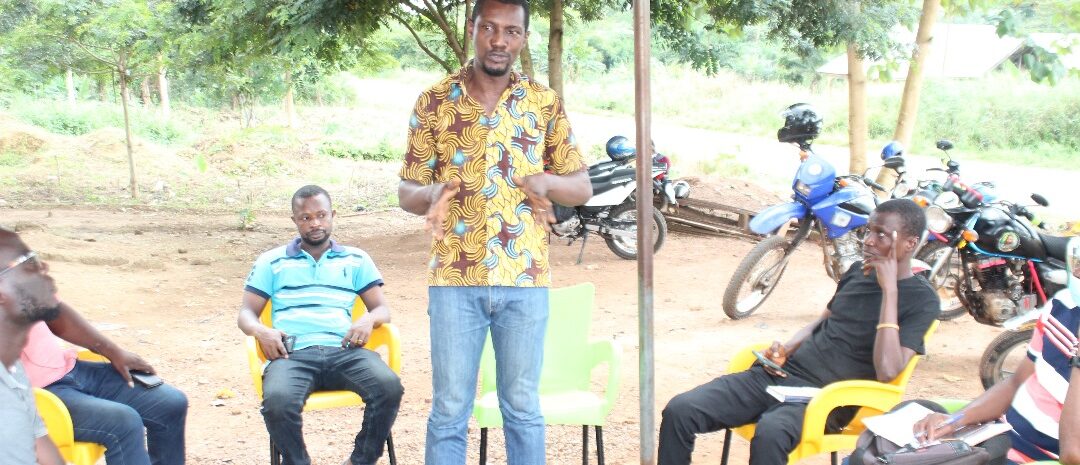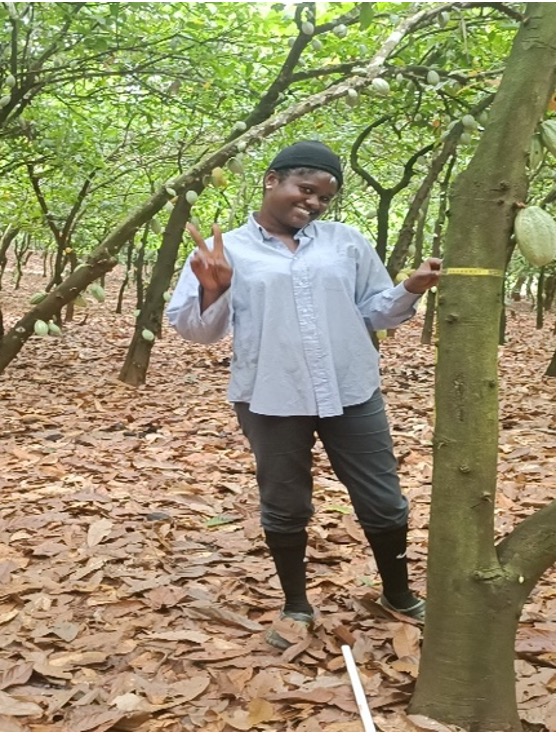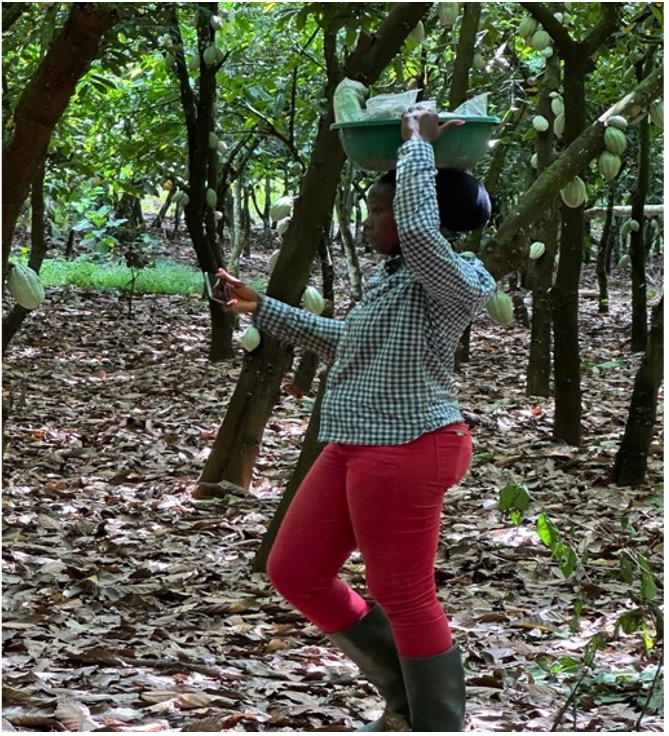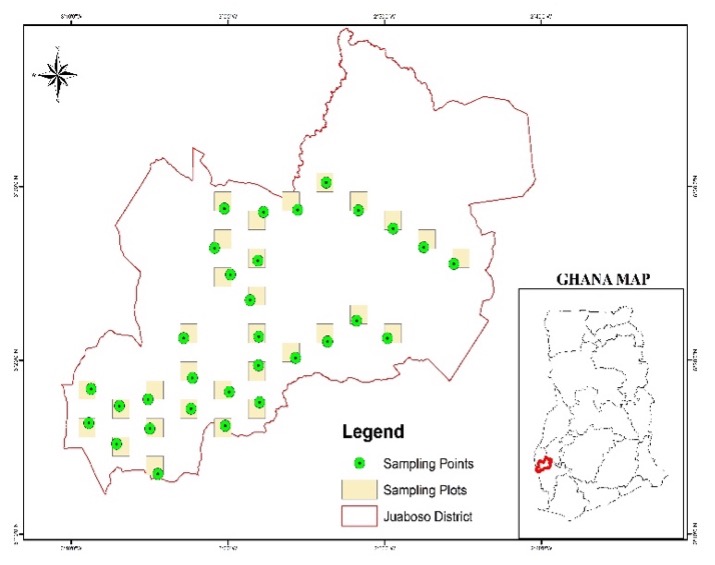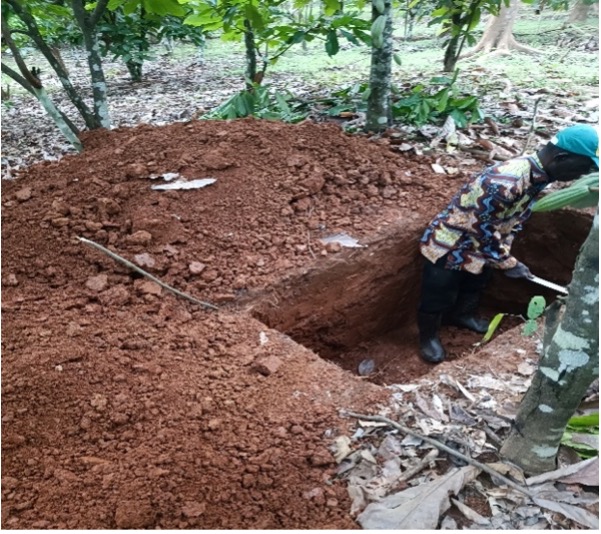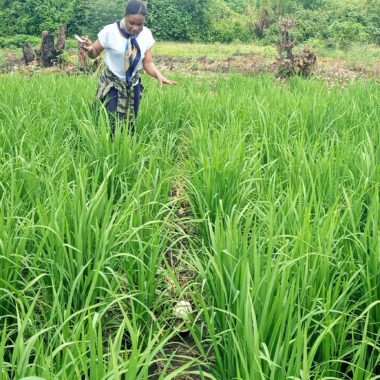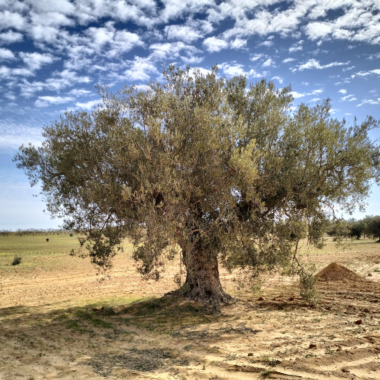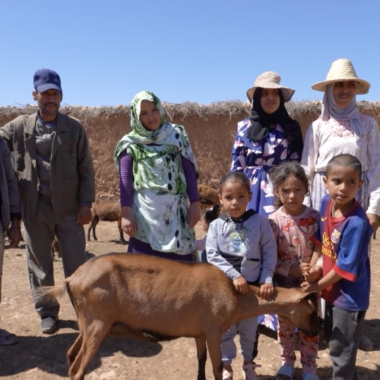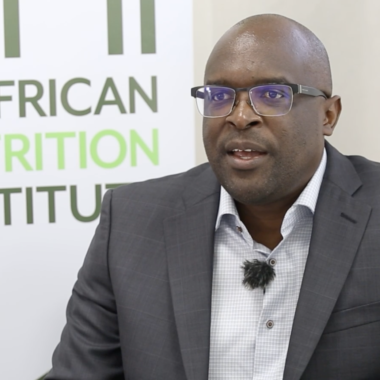Investigating Soil Health and Carbon Sequestration Potential in Ghanian Cocoa Farms
What are the benefits that can be expected from managing for higher soil carbon in Ghanaian cocoa farming systems? This question is at the heart of a comprehensive research program currently underway throughout the main cocoa production zones of Ghana.
The Soil Health and Carbon Sequestration (SH&C) Project began its field activities in 2023 with the goals of enabling increased soil organic carbon, improved soil health and farmer livelihoods, and resilience of Ghanian cocoa cropping systems to climate change.
Listed amongst its desired impacts, the project is striving towards: (1) strengthen capacity and authority across Ghanian cocoa research institutions via graduate student development and scientific contributions to the knowledge base; (2) improved availability and accessibility of information on soil carbon storage, and nutrient balance within Ghana’s cocoa farming systems; and (3) enhanced engagement across the cocoa value chain via participatory research processes that more fully involve farmers and the private sector.
Supported by APNI, this project is a wide-sweeping collaboration led by Co-Principal Investigators, Dr. Edward Yeboah, CSIR-Soil Research Institute, and Prof. Eric Kwesi Nartey, University of Ghana, and project partners from the Ghanian National Agriculture Research Systems, Cocoa Tree Crop Producers’ Networks, and the Ghanian Private Sector.
Early progress in graduate student research
Now in his second year of study at the University of Ghana, Ph.D. student, Mr. Jerome Dogbatse’s research on cocoa soil health and carbon sequestration strategies is progressing towards its goal of improving the productive capacity of Ghana’s cocoa farms. Data generated by Mr. Dogbatse’s work is establishing the basis to assess improvements in carbon sequestration and soil health in relation to cocoa yield interventions through biochar-compost amendment treatments imposed on selected cocoa farms interspersed within the two primary cocoa farming systems (i.e., agroforestry integrated cocoa, and cocoa monoculture).
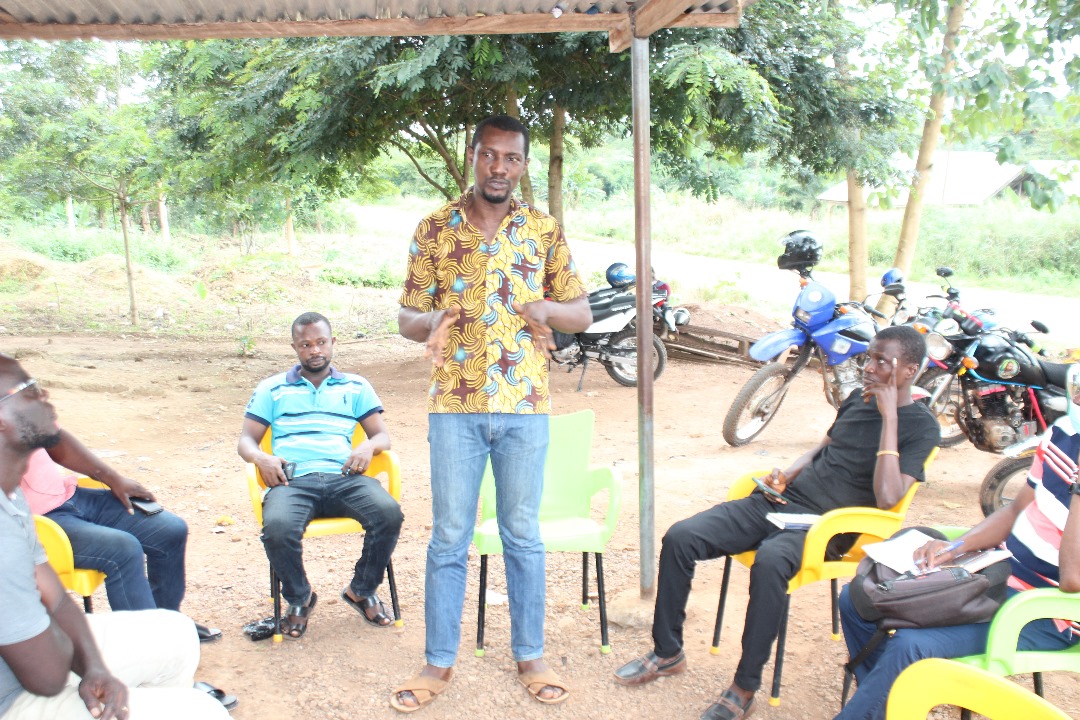 Mr. Jerome Dogbatse shown discussing soil health issues with cacao farmers. This early work has also included the development and pretesting of survey protocols designed to collect agronomic and socio-economic data from the region’s farmers including indigenous knowledge on soil health, cocoa yields, and farmer livelihoods sustained by the cocoa production systems.
Mr. Jerome Dogbatse shown discussing soil health issues with cacao farmers. This early work has also included the development and pretesting of survey protocols designed to collect agronomic and socio-economic data from the region’s farmers including indigenous knowledge on soil health, cocoa yields, and farmer livelihoods sustained by the cocoa production systems.
Mr. Dogbatse is also being assisted by University of Ghana M.Phil. students, Ms. Sarah Agyare and Ms. Nancy Otibo, who are both involved in generating the baseline data on soil health and carbon stocks within the agro-ecological regions supporting the two farming systems, as well as the surrounding natural forests within the Ashanti, Ahafo and Western North Regions of Ghana.
Ms. Sarah Agyare (left) and Ms. Nancy Otibo (right) is generating baseline data on both above and below ground carbon stocks in agroforestry and monoculture cocoa systems in the two agro-ecological zones in comparison with stocks in the associated native forests.
(Left) Map of sampling plots distributed within Juaboso District and (right) a view of a sampling point collecting soils for use in the soil health analysis.
As the project progresses, the opportunity to engage additional graduate student in agricultural economics, agri-business, and soil science to assist in the generation of baseline data and other data sets that will assess the benefits stemming from this research.
Establishment of a new agronomic platform for biochar-compost trial
Dogbatse’s Ph.D. research on evaluating biochar-compost efficacy as a carbon-rich soil amendment has identified participating cocoa farms under each agroforestry and monoculture systems in the semi deciduous and moist evergreen agro-ecological zones. Farms were selected according to soil type, cocoa tree age, proximity to community, farm size, and willingness of the farmer to cooperate over the 5 years required to evaluate the impacts. Biochar-compost rates are applied based on the phosphorus (P) requirements of cacao trees and compare standard P requirements (SPRs), half SPR, equivalent triple super phosphate, and farmers’ practice. Residual effects of biochar-compost amendments will be assessed as the study continues to determine how best to manage reapplication of the nutrient source from season to season over the course of the study.
Summary
Cocoa systems contribute significant to the livelihoods of Ghanian farmers, but the challenges observed under current management are hampering productivity and resilience. Researchers within this project are looking to identify the opportunities, and obstacles, for adopting improved plant nutrition management practices. Can cacao tree crop soil health and carbon sequestration potential be enhanced in response to P nutrition interventions? The current knowledge gaps can be closed by generating evidence for specific cocoa farming profiles including the identification of nutrient requirements under the study’s improved crop nutrition interventions, and best practices for cocoa system resilience to moisture stress induced by a changing climate.
Follow this project at: https://www.apni.net/project/atcs-cacao/

